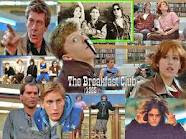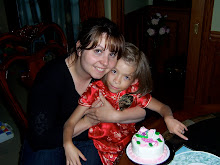
The Breakfast Club takes place at an Illinois high school, where five dissimilar students are sentenced to spend a Saturday detention session together. In attendance is a "princess" (Ringwald), an "athlete" (Estevez), a "brain" (Hall), a "criminal" (Nelson), and a "basket case" (Sheedy). These titles identify the roles the students play during the school week. Because of stereotypes and status levels associated with each role, the students want nothing to do with each other at the outset of the session. However, when confronted by the authoritarian detention teacher (Gleason) and by eight hours of time to kill, the students begin to interact. Through self-disclosure they learn that they are more similar than different. Each wrestles with self-acceptance; each longs for parental approval; each fights against peer pressure. They break through the role barriers and gain greater understanding and acceptance of each other and of themselves. They ultimately develop a group identity and dub themselves, "The Breakfast Club."
1. Discuss the group's developmental stages.
The developmental stages of forming, storming, norming, and performing can be seen in the movie. The group is formed because each student has broken the school rules; they are together because they are all serving detention (except for Allison, who at day's end admits she is there because she had nothing better to do). During the storming stage, both types of social tension are exhibited. Primary tension can be seen in Claire's statement that she doesn't "belong here." It is also evident when Brian gives up his seat to Bender and in Allison's nail biting. Examples of secondary tension include Bender's antagonistic exchanges with Claire, the shouting matches between Bender and Andrew, and Allison's strange outburst during Claire's disclosure about her parents.
Mr. Vernon attempts to set explicit norms by stating that there is to be no talking, no moving, and no monkey business. However, this attempt to establish norms is unsuccessful because the norms are not accepted by the group. Implicit norms develop in the group, such as yelling, questioning, disrespect for authority, and, most notably, self-disclosure. Many of these norms are initiated by Bender, which points to his power, status, and leadership in the group.
Regarding performing, the group ultimately accomplishes its explicit task--writing a detention essay--by assigning it to Brian. The group also has a number of less-explicit goals that it achieves. The most obvious is that they successfully kill eight hours of detention with a minimum of boredom. They perform many of the functions of an encounter group, learning about themselves and each other through intimate self-disclosures. They also band together in a variety of rebellious acts, from roaming the halls to smoking pot. All of these acts suggest a level of "groupness" that develops in a few short hours.
2. What factors contribute to the group's cohesiveness?
The first factor leading to the group's cohesiveness is the amount of time and interaction they have with each other. While time alone does not insure the development of cohesiveness, the group has nothing else to do and plenty of opportunity to talk. After weathering some primary and secondary tension, the group starts to congeal when it identifies a mutual enemy: Mr. Vernon. An early indicator of group identity emerges in Bender's use of "we" as he asks, "Why don't we close that door? We can't have any party with Vernon checking us out." They begin to perform as a group after Bender removes the screw from the door leading to Vernon's office. The other students cover for him when Vernon comes back asking, "How did that door get shut?"
Cohesion is further developed through self-disclosure. Bender gets Claire to self-disclose about her feelings toward her parents. Andrew then turns and asks Bender to tell about his parents. This discussion is critical to the development of cohesion because the group members begin to see the similarity of their struggles and they identify with each other. Later, the group pressures Claire to confess her virginity. An embarrassed Claire calls Allison "bizarre" for lying to force the confession. Andrew replies, "We are all pretty bizarre. Some of us are better at hiding it, that's all." This marks another point of similarity: they all protect their self-concepts by putting on faces in line with the expectations that others have for them. Andrew describes his struggle to live up to his father's athletic expectations and Bender tells of his father's abuse. Thus, two very different characters find common ground, typified by Bender's comment to Andrew: "I think my dad and your dad ought to get together and go bowling."
As they band together to fight against mutual enemies--parents, peer pressure, authority figures, stereotypes, boredom--the Breakfast Club develops into a highly cohesive group.
QUESTIONS!
What stages do you predict your group will go through? How do you see your group developing group-cohesiveness? Do you think self-disclosure will help your group bond? What about the class as a whole?
RESPONSE REQUIRED!
Disclosure is important in team building. Disclose 5 things about yourself that you feel are important about you to your group members. It does not have to be something confidential, just something unique and special about you!





